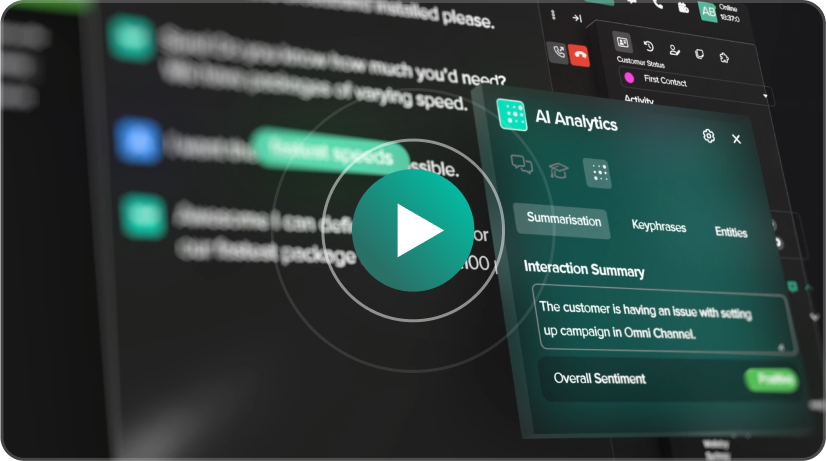One Step Further: Large Language Models (LLMs)
As we have said earlier, some advanced AI Customer Service Chatbots rely on Large Language Models (LLM), going beyond what basic Conversational AI models can do. ConnexAI’s Athena Agent, for example, is not just an AI Conversational Bot: it’s an LLM, or Large Language Model. Its sophisticated algorithmic architecture prepares it to handle conversations with customers with unmatched levels of domain-specific knowledge and attention to nuance. It learns from past interactions and from your own knowledge database, offering more accurate, helpful, comprehensive, fine-grained, and personalised responses every time, boasting comprehensive knowledge about the company’s products, services, market, operations, and customers.
The distinction between Large Language Models (LLMs) and AI chatbots lies in their scope, adaptability, and underlying complexity. While AI chatbots are specific applications designed to handle predefined tasks or interactions—typically relying on scripted responses or basic AI frameworks—LLMs like Athena Agent represent a much broader and more advanced capability in natural language processing.
Athena Agent, as an LLM, is fundamentally different because it goes beyond simply responding to prompts based on pre-programmed scenarios. Its algorithmic architecture enables it to process vast amounts of data, including context from previous interactions and proprietary knowledge bases. This allows it to generate nuanced, domain-specific responses that are both highly accurate and dynamically tailored to the needs of the user.
An LLM like Athena Agent goes beyond merely simulating understanding; as an AI Agent, it continuously learns from its interactions, crafting responses that are never predefined but uniquely tailored to each situation and query. It refines its ability to answer questions and address concerns by integrating new knowledge, making it more effective over time. In contrast, a traditional chatbot may struggle with unexpected queries or fail to adapt to evolving customer needs, often requiring manual updates to its response patterns.
Moreover, Athena Agent’s strength lies in its fine-tuned comprehension of the company’s products, services, market, and customers. This level of sophistication enables it to provide comprehensive, personalized assistance that exceeds the capabilities of typical chatbots, which might only handle basic inquiries or tasks. By bridging the gap between advanced linguistic understanding and practical application, ConnexAI leverages the power of LLMs to deliver a superior customer service experience.
